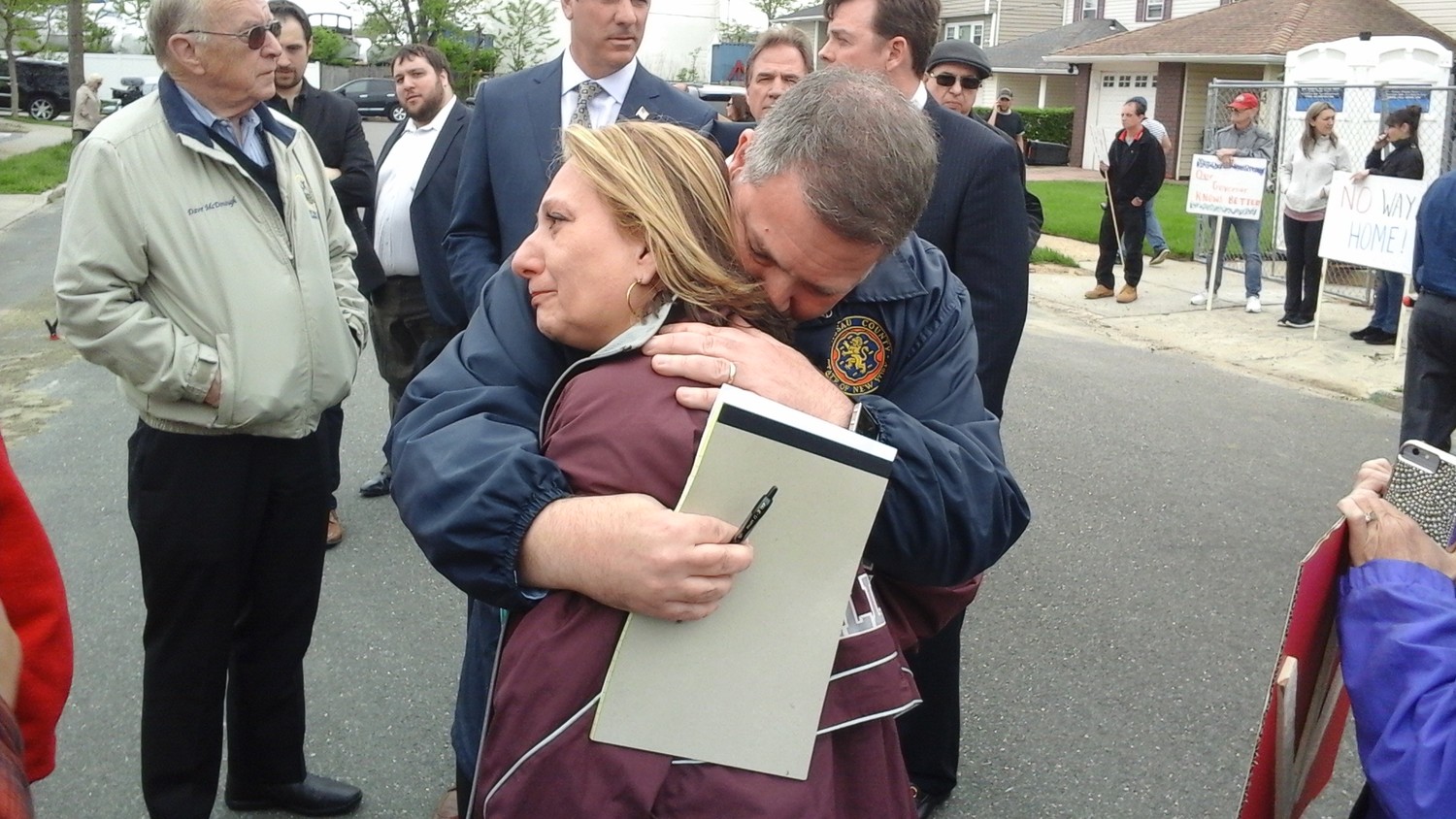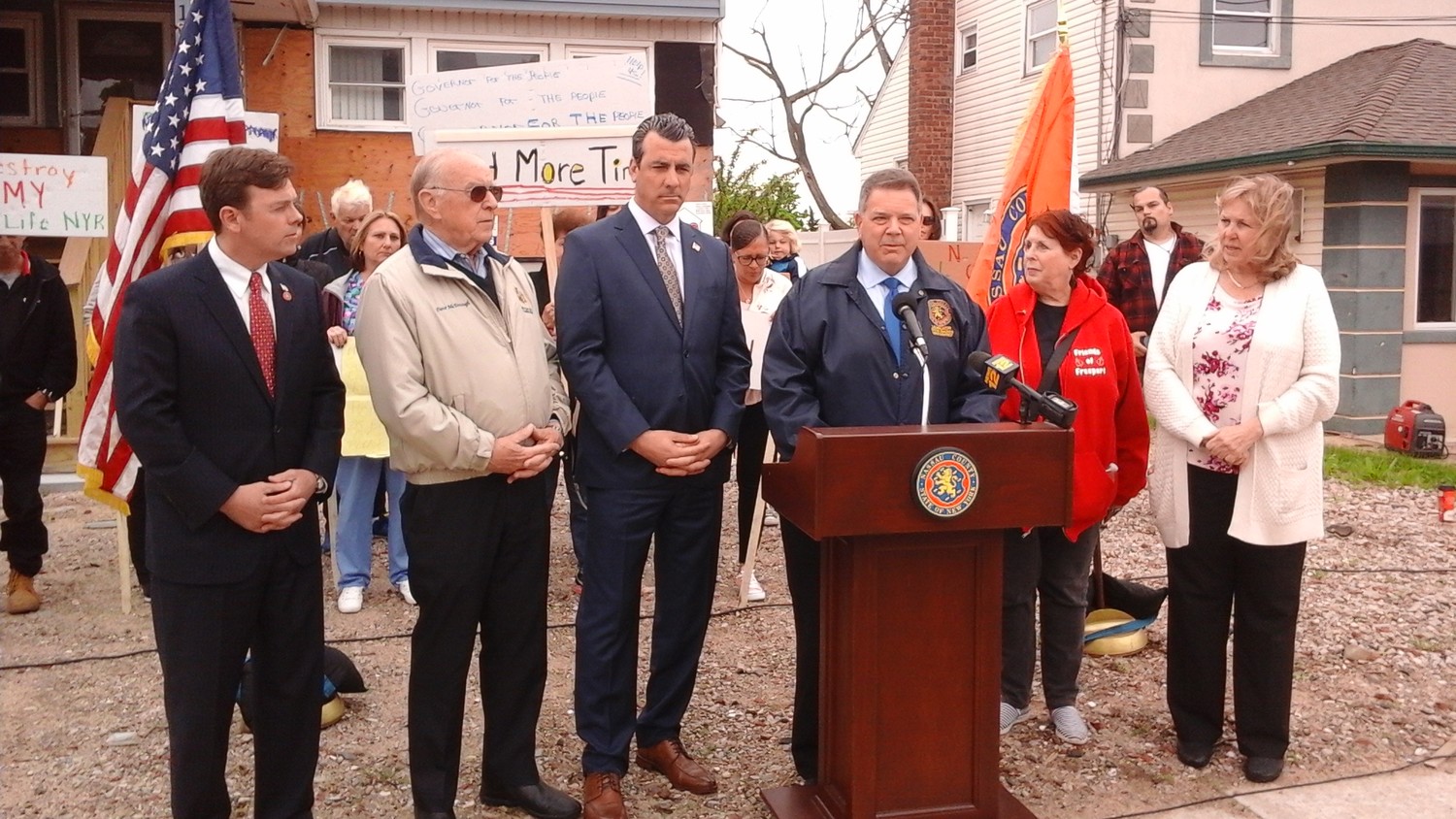New York home elevation deadlines extended
Sandy fraud victims have more time to finish
The deadlines for victims of Hurricane Sandy seeking storm recovery funds to elevate their houses to protect them from future storm damage have been extended.
Hours after a news conference last Friday, at which elected officials representing Wantagh, Seaford and other South Shore communities urged Gov. Andrew Cuomo to extend the deadlines for the elevation work, New York Rising — the program established to provide storm victims with financial aid — announced that the deadlines would be extended to Jan. 1, 2019.
Interim inspection dates — dates by which affected homeowners must show progress in the elevation work — had been June 1 for those opting to lift their homes and Sept. 1 for those facing mandatory elevations. Both groups will now have the rest of the year to get their homes in the air.
Nassau County Legislator Steve Rhoads, a Republican from Seaford who organized the news conference, said that while he was happy that the deadlines were extended, it is important for the Governor’s Office of Storm Recovery to “pay attention to what’s happening down here on Long Island.”
“New York Rising and GOSR must make a one-on-one effort to address not only the deadlines, but the underlying reason why homeowners are continuing to have difficulty meeting these deadlines,” Rhoads said on Monday.
Homeowners were behind schedule as a result of circumstances beyond their control, he explained, including potential contractor fraud, delays in the building permit process and the sheer volume of paperwork required by NY Rising.
On Friday, Rhoads was joined in Freeport by State Assemblyman Dave McDonough, of Bellmore, and County Legislators Denise Ford, of Long Beach, and James Kennedy, of Massapequa, as well as residents of Seaford and Massapequa who came to protest the deadlines. Signs at the gathering read, “Stressed Out,” “No Way Home” and “Need More Time.”
Homeowners consoled one another as they shared their concerns and issues with Rhoads, who walked through the crowd of protesters and answered their questions.
Those whose houses were “substantially damaged” by Sandy were required to raise them. Other homeowners could choose to opt into the program, but all were required to meet deadlines in the process of elevating and rebuilding their homes to keep their state funding.
A spokeswoman from the Governor’s Office of Storm Recovery, which oversees NY Rising, said, “GOSR has already extended the deadline for certain homeowners who have filed contractor fraud claims, and is now expanding that opportunity to accommodate those facing difficulties that are delaying the work.”
The Optional Elevation program was created in 2014 to provide grants to people who chose to raise their homes to make them more resilient. The program closed to new applicants in March 2016. Of the 2,010 people participating in that program, 1,820 have completed construction or made substantial progress. A total of $392 million in federal funds has been awarded to those participants, state officials said.
“I don’t think that five and half years ago, after Superstorm Sandy, we thought we’d all be standing here today in the situation that we’re in,” Rhoads said. County officials, he added, would like “people that are dealing with these issues to know that, even though it seems some may have forgotten, we have not forgotten.”
Officials from the Nassau County Office of Consumer Affairs said last week that they had received 185 consumer complaints about Sandy contractors.

 54.0°,
Fair
54.0°,
Fair 







